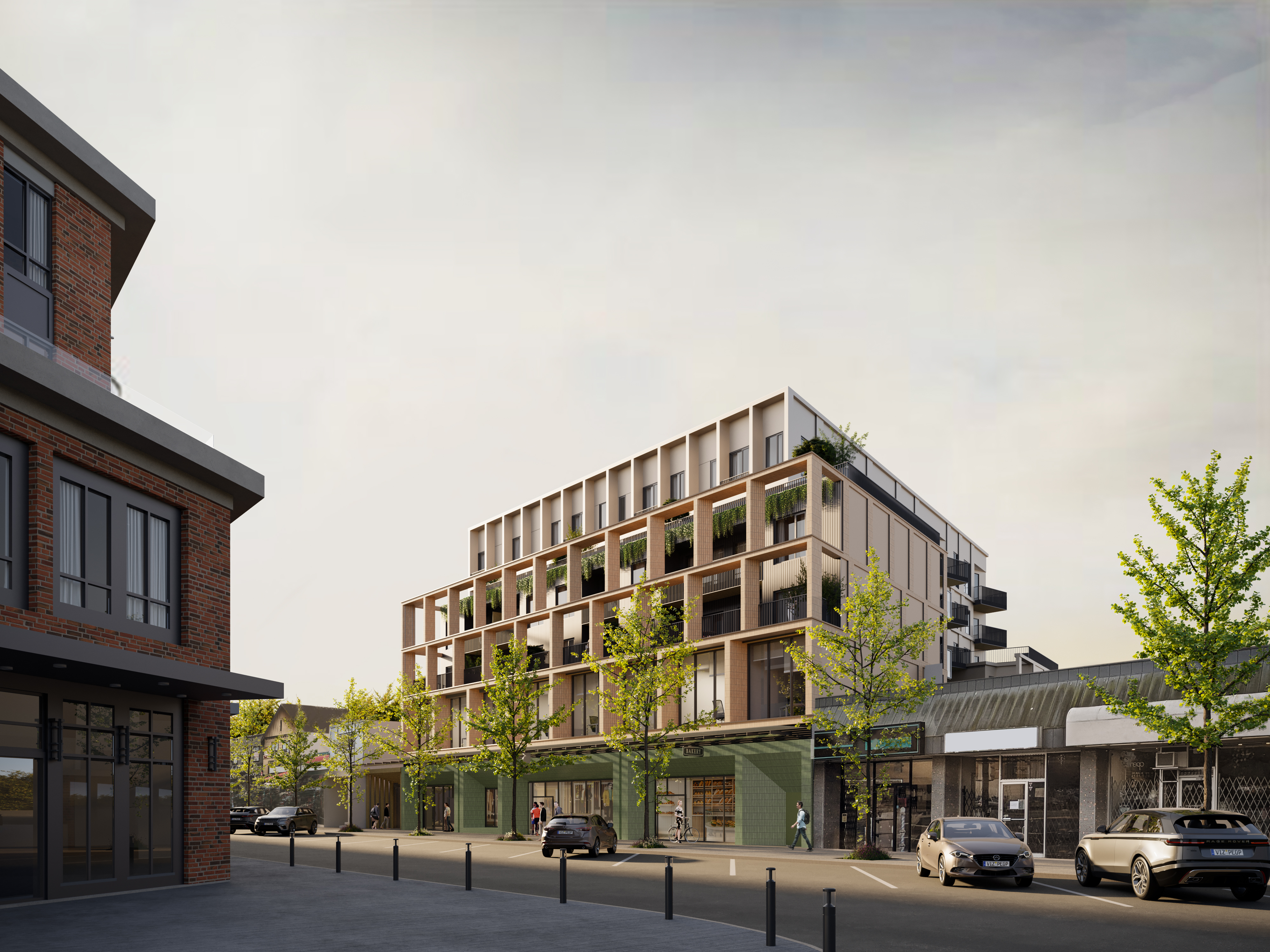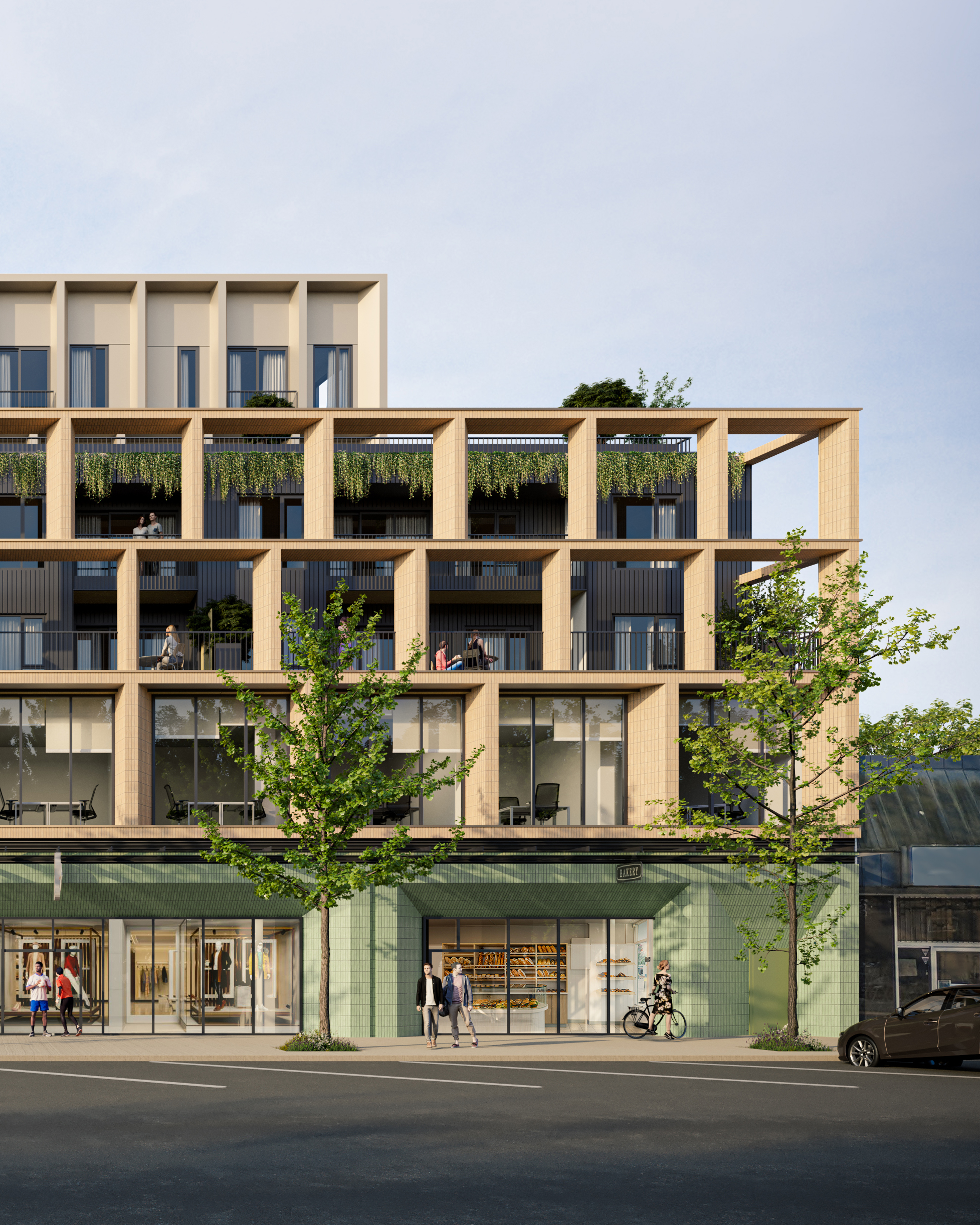

Brick Apartments
Type: Multi-Family, Mixed-Use
On The Boards:
This project is an exploration of two questions that are critical to infill development today: 1) What does it mean to create a new district with heritage character, and 2) what is an appropriate expression of brick for this time and this climate?
Many municipal planning departments struggle with the question of how to create heritage character in districts where existing heritage building stock isn’t available. In this case, the mandate for new infill buildings is to respect the scale of the street, and use durable building materials. To accomplish both these goals, the street-wall is defined by a masonry screen that floats off the face of the building, topping out at 4-storeys at the street level, and rising to a height of six stories at the back. This screen is treated like the façade of a genuine heritage building that may have been retained, while new uses were filled in behind it.
In this climate, brick is often designed to look load-bearing, even though impossible for it to be anything other than cladding or dressing for the wall behind it. As an acknowledgement of this fate, the heaviness of brick is exaggerated in this proposal. Like the Monadnock Building in Chicago (the tallest unreinforced masonry building in the world), the walls here are quite thick at the street and become dramatically lighter as they rise. Even the number of brick columns reduces, giving the sense that this heavy brick is becoming almost weightless.
Vizualizations by Miguel Orellana.
Brick Apartments
Type: Multi-Family, Mixed-Use
On The Boards:
This project is an exploration of two questions that are critical to infill development today: 1) What does it mean to create a new district with heritage character, and 2) what is an appropriate expression of brick for this time and this climate?
Many municipal planning departments struggle with the question of how to create heritage character in districts where existing heritage building stock isn’t available. In this case, the mandate for new infill buildings is to respect the scale of the street, and use durable building materials. To accomplish both these goals, the street-wall is defined by a masonry screen that floats off the face of the building, topping out at 4-storeys at the street level, and rising to a height of six stories at the back. This screen is treated like the façade of a genuine heritage building that may have been retained, while new uses were filled in behind it.
In this climate, brick is often designed to look load-bearing, even though impossible for it to be anything other than cladding or dressing for the wall behind it. As an acknowledgement of this fate, the heaviness of brick is exaggerated in this proposal. Like the Monadnock Building in Chicago (the tallest unreinforced masonry building in the world), the walls here are quite thick at the street and become dramatically lighter as they rise. Even the number of brick columns reduces, giving the sense that this heavy brick is becoming almost weightless.
Vizualizations by Miguel Orellana.
